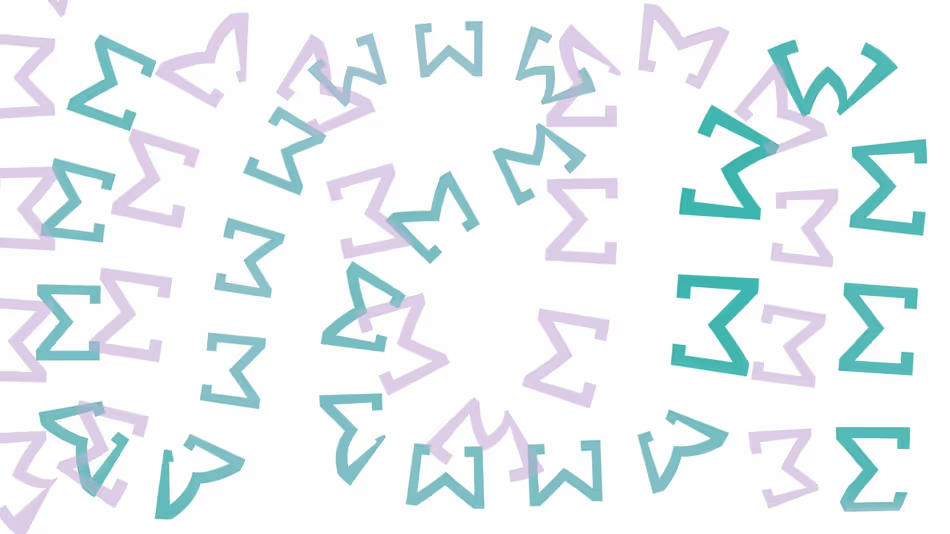Recently, I’ve read some excellent articles that cover math anxiety. They have me reflecting on my childhood. I remember this time vividly, due to the trauma I experienced. Even as an adult, it is difficult to leave the painful experiences behind.
When we talk about math anxiety, we usually only talk about one direction. There are kids who experience pain while solving math problems.
There is a flip side to this. We don’t discuss what it is to like to love mathematics and be rejected by society for those feelings.
I have experiences with both - and neither is very pleasant
The negative attitudes of others left a mark. I developed a sense of shame associated with my joyful feelings toward math. As an adult, I am often overwhelmed by my social anxiety when I try to discuss math with others in person. That is why I write about it. I can articulate what lies inside my mind and heart.
We should be aware that kids who love math and those who don’t are facing social consequences. That is what I want to talk about today.
What it Feels Like to Have Math Anxiety
-
Feeling as if your very being is fundamentally flawed.
-
Frustration, as you watch other children succeed and you fall behind.
-
Parents who don’t believe you when you say that you can’t read an analog clock.
-
Receiving unwanted attention from your teacher, who keeps you in at recess to work on your multiplication.
-
Giving up, believing you will never understand mathematics.
What it Feels Like to Love Mathematics
- Being labeled as smart by men so you will shut up, as society has taught you to be invisible.
NSFW
-
Being told by a parent to not discuss mathematics with others, because you will make them feel bad.
-
It’s being a queer kid and not learning about Alan Turing until you take a computer science course in college.
-
It’s having every attempt to discuss math with others thwarted as they change the subject or ignore you completely (including your own family.)
-
Knowing you aren’t getting the same recognition or validation because of your gender (Maryam Mirzakhani was the first woman to win the Fields Medal in 2014.)
And…it’s even sending your math feelings in a valentine to someone, and not being rejected; rather, you experience acceptance, and the person is touched by the gesture. For the first time, you see that your emotions around mathematics are good, and maybe the best part of yourself.
Adults Forget What it’s Like to be Children
When we reflect on our lives as adults, we don’t remember things as they once were. We remember our stories. Our episodic memories make us who we are. We are erasing and creating them in our minds, always.
Combine this with the fact that you do not cognitively acquire your peak executive functioning until you are an adult. Executive functioning is responsible for behavior, how we understand that our actions have consequences, monitoring our behavior, and how we go about achieving our goals. Yet, when you were a kid, you were still learning. You were not a mini adult version of yourself, yet, that is how we perceive ourselves. These are our narratives through the eyes of our now-adult brains.
I think Jeffrey Lewis put it best in his song Back When I was Four.
“And being small is hard and no one ever tells you how.”
Ending the Cycle of Math Anxiety
Adults seem unaware of the pain they can inflict on children. When we don’t deal with our traumas, we pass on the legacy of pain to the next generation.
This is what we know about math anxiety.
“A couple of years ago, Dr. Beilock and her colleagues published an article showing that parental math anxiety could be transmitted to children.”
Math traumatized adults have the potential to pass that on to their children.
What we need to remember is, our emotions are not our abilities.
I think the way we deal with trauma is to counteract it with compassion - for ourselves and others. We can feel love for ourselves in our darkest moments. I feel for parents and children who experience math anxiety because I felt it myself during the early years of my life.
I’ve had lots of different experiences with people. In all my interactions, I’ve learned one thing is true. People want someone to listen to them and acknowledge their pain. I think this is how we best help math haters and those with math anxiety. By listening non-judgmentally and sharing our own experiences. We can share our world with them, open their eyes, and maybe reach an understanding even if we disagree. Mostly, I want them to accept me as I am, where I accept them as they are; where we begin to change these legacies of pain.

